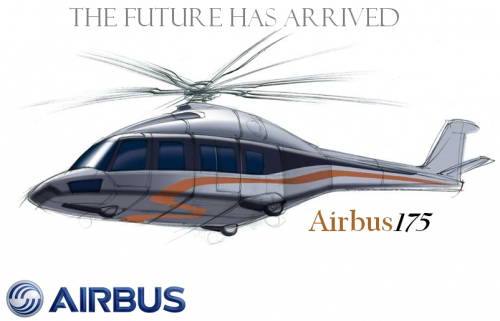European Aeronautic, Defence & Space Co. (EAD) will adopt the Airbus name for the entire group to reflect the dominance of commercial aircraft and plans to combine defense and space operations to help weather shrinking demand.
EADS, which also reported earnings today that beat analyst estimates, said it will reorganize into three divisions, including civil aircraft, helicopters and defense and space. EADS rose as much as 3.3 percent to 45.75 euros, the most since it was formed and began trading in 2000.
Adopting its most recognizable brand for the entire group ends a decade-long attempt to create a balance between Airbus and other operations, most recently with last year’s proposed merger with BAE Systems Plc (BA/) that failed amid government opposition. Chief Executive Officer Tom Enders has since reshaped the shareholder structure to curtail political influence, and has vowed to make EADS more investor-driven.
“The renaming simply gathers the entire company under the best brand we have,” Enders said. Moving defense and space together will create a ‘one-stop shop for the air forces of the world.’’
EADS rose as much as 1.48 euros in Paris, and traded at 45.1356 euros as of 1:00 p.m. The stock has gained 52 percent this year, while Boeing Co. (BA:US) has advanced 40 percent.
Airbus Contribution
Earnings before interest and tax, goodwill impairment and exceptionals rose to 887 million euros ($1.18 billion) from 724 million euros a year earlier, as sales increased 3 percent to 13.95 billion euros. Analysts had estimated earnings of 803.7 million euros, according to a Bloomberg survey.
Airbus contributed 637 million euros to earnings, up from 391 million euros a year earlier as its sales rose 2 percent to 9.74 billion euros. Gross commercial aircraft orders will 1,000 aircraft, with deliveries at 600 to 610 units, EADS said.
The company maintained its outlook for Ebit before one-offs of 3.5 billion euros and earnings per share before one-off of about 2.50 euros, prior to the continuing share buyback.
The commercial aircraft division contributed about 70 percent of sales, which Enders said underscores the importance of the business in driving growth. With the restructuring, EADS has shed its earlier ambition to create an equal balance between Airbus and the other businesses in the group, he said.
Welcome Strength
“We welcome the strength and success of Airbus,” Enders said on a call with journalists.
Enders said the A350 wide-bodyprogram, while facing its most challenging period yet, is performing well after 92 hours of flight tests. The plane will fly 2,500 hours in total before the tests are complete. They must wrap up by next summer to get the aircraft into commercial service by autumn of 2014.
The reorganization announced today underlines EADS’s commitment to defense and space for the long term, and the restructuring is aimed at cutting costs in the absence of new large defense projects in Europe for at least the next decade, Enders said.
EADS’s cash position at the end of June was 5.9 billion euros after taking into account 1.8 billion euros already consumed to fund the share buyback program and the 2012 dividend payment of 468 million euros.
Besides helping EADS better present its array of military and space products in international markets, the restructuring is also aimed at tackling costs, EADS said. The group gave no details on potential job cuts, while saying workers council consultations and various other approvals will be required before the overhaul can come into effect.
Munich Base
EADS will examine what charges it may have to take before year-end to absorb the costs of integrating the defense and space activities as it targets a phased implementation of the reorganization due to start on Jan. 1 and completed in the second half of next year.
The changes are part of an effort to reshape a company that relies increasingly on civil airliners for growth as its military business suffers from European budgetary constraints. With the new defense and space unit remaining in Munich, EADS keeps one of three major businesses anchored in Germany, where government resistance, partly based on the absence of a planned local base, led EADS to abandon the BAE merger effort.
The company’s three businesses will now be known as Airbus, Airbus Defence & Space, and Airbus Helicopters. Bernhard Gerwert, 60, will be CEO of the defense and space unit.
With European governments spending less on defense, EADS’s new division will need to focus on growing markets in Asia and the Middle East, facing off against rivals such as Boeing Co. and Lockheed Martin Corp. (LMT:US) Combining all defense-related assets may help the company streamline its offerings in new markets.
“Pooling the space and defense entities Airbus Military, Astrium and Cassidian is the group’s response to the changing market environment with flat or even shrinking defense and space budgets in the Western hemisphere,” EADS said.



